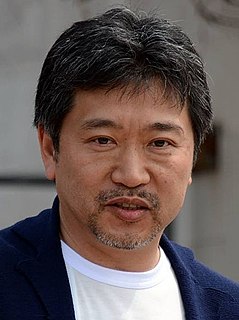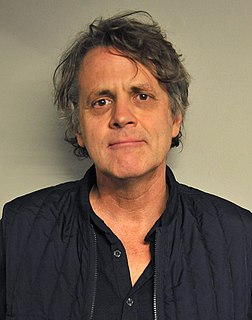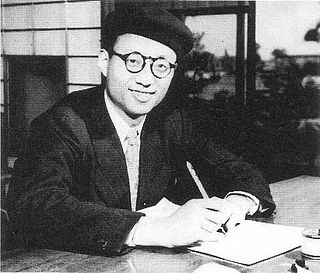A Quote by Hirokazu Koreeda
One of the more problematic aspects of the current state of cinema in Japan is that the movies playing in the theaters are by and large made not by film studios but by broadcasting companies. They're either extensions of popular television dramas or adaptations of manga or anime. Younger Japanese are simply not being exposed to good films. That situation needs to change.
Quote Topics
Anime
Aspects
Being
Broadcasting
Change
Cinema
Companies
Current
Current State
Dramas
Either
Exposed
Extensions
Film
Films
Good
Good Film
Good Films
Japan
Japanese
Large
Made
Manga
More
Movies
Needs
Playing
Popular
Problematic
Simply
Situation
State
Studios
Television
Television Drama
Theaters
Younger
Related Quotes
Richard Donner made great movies. Seminal movies. The Academy, though, and we have to be careful here, should recognize popular films. Popular films are what make it all work. There was a time when popular movies were commercial movies, and they were good movies, and they had to be good movies. There was no segregation between good independent films and popular movies.
You look at Japan and Hayao Miyazaki's films are the biggest films ever made in Japan; domestically there and they play to critical acclaim around the world. He won't put more then 5 or 10 percent computer imagery in his movies. It's disappointing to me. It's a silly choice that some studios made to move out of animation. It's part of the unfortuneate preconception that I think the public has going into see animation.
Do you like manga?" she asked after a minute. "Anime?" "Anime's cool. I'm not really into it, but 1 like Japanese movies, animated or not." "Well, I'm into it. I watch the shows, read the books, chat on the boards, and all that. But this girl I know, she's completely into it. She spends most of her allowance on the books and DVDs. She can recite dialogue from them." She caught my gaze. "So would you say she belongs here?" "No. Most kids are that way about something, right? With me, it's movies. Like knowing who directed a sci-fi movie made before I was born.
I think that nationality has no relation to that which gives rise to manga. Even among the Japanese, manga creators are making their creations everyday reflecting their own individuality, with none being the same. What is important isn't the differences between the creators but their love for manga.




































